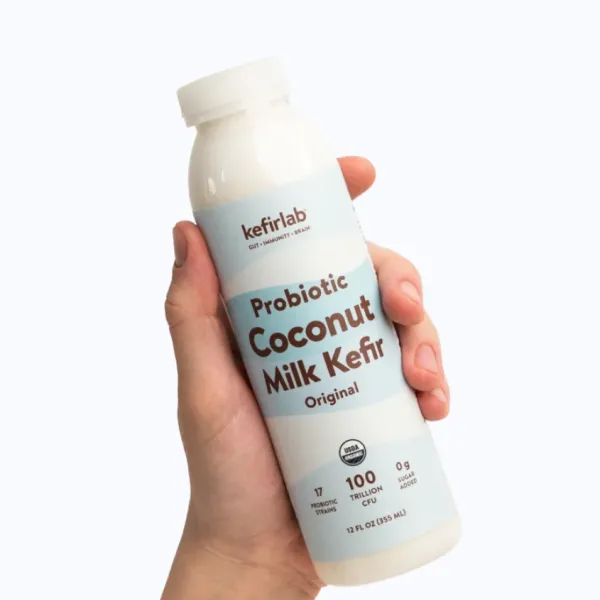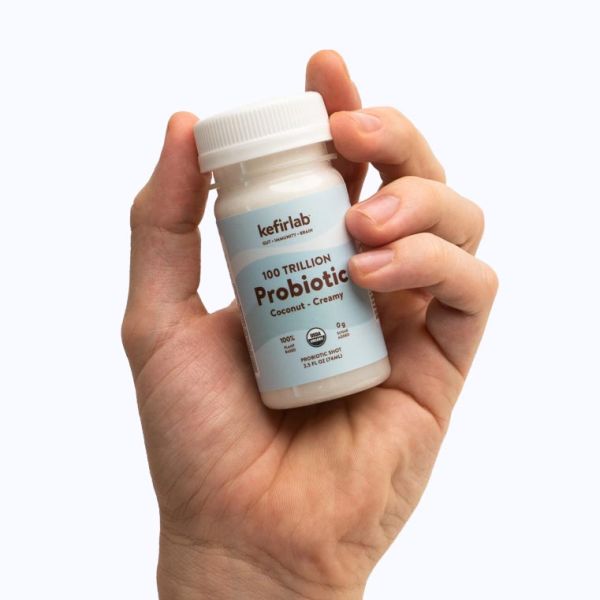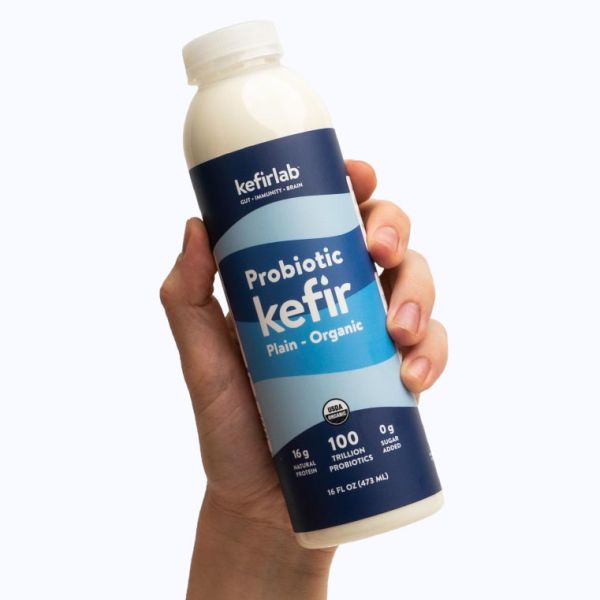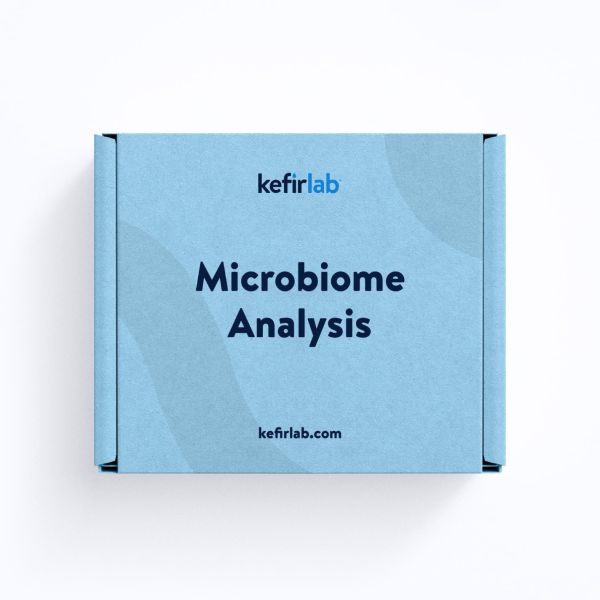How Gut Health Influences Skin Health [A Comprehensive Guide]

Table of contents
In This Article you will learn…
Gut health is increasingly recognized as a cornerstone of overall well-being, impacting various aspects of health, from mental clarity to immune response.
However, one of the most visible reflections of gut health is on the skin—our largest organ.
This article delves into the fascinating interplay between the gut and the skin, explaining how a healthy gut microbiome can lead to clearer, more radiant skin.
By the end of this guide, you will understand the critical role gut health plays in maintaining skin health, backed by scientific studies and expert insights.
The Gut-Skin Connection
The gut-skin axis isn’t new, but it is gaining more attention as researchers uncover how deeply our gut health influences skin conditions.
A healthy gut acts as a barrier against environmental toxins and pathogens while regulating immune responses.
This, in turn, affects skin inflammation and common conditions such as acne, eczema, and psoriasis.
In this section, we’ll explore how the gut communicates with the skin and how disturbances in the gut microbiota can manifest as skin problems.
- Inflammation: Chronic inflammation from poor gut health can lead to severe skin conditions.
- Barrier Function: The gut helps to maintain the integrity of the skin’s barrier function, preventing unwanted substances from entering the body and affecting the skin.
- Hormone Regulation: Imbalances in the gut flora can affect hormone levels, influencing skin health.
Each point will be elaborated with the latest research and insights from health experts, providing a thorough understanding of the connection.
Role of Probiotics in Skin Health
Probiotics are live microorganisms that confer a health benefit on the host when administered in adequate amounts.
They are mainly known for their benefits to digestive health, but their impact extends well beyond the gut.
This section explores how incorporating probiotics into your diet can significantly enhance your skin health.
- Enhancing Skin Barrier: Probiotics help strengthen the skin’s barrier function, protecting against environmental damage and pathogens that can cause irritation and breakouts.
- Modulating the Immune System: By regulating the immune system, probiotics can reduce the inflammatory responses that lead to skin conditions such as eczema and psoriasis.
- Reducing Outbreaks: Regular consumption of probiotics has been shown to reduce the severity and frequency of skin conditions like acne by balancing the skin’s natural microbiota.
Example: Incorporating KefirLab’s Coconut Kefir, rich in probiotics, can help maintain balanced gut flora and is linked to reduced inflammation and clearer skin.
Impact of Diet on Skin Health
What you eat plays a crucial role in the health of your gut and, consequently, your skin.
This section covers how dietary choices influence gut health, impacting skin clarity and overall skin condition.
- Foods to Favor: Emphasize a diet rich in fibrous fruits, vegetables, and fermented foods like kefir, which promote a healthy gut microbiome.
- Foods to Avoid: Reduce intake of processed foods and sugars, which can disrupt gut balance and exacerbate skin issues.
- Hydration: Maintaining adequate hydration supports gut function and helps clear toxins that could affect the skin.
Practical Tip: To boost gut and skin health effectively, try integrating KefirLab’s range of probiotic shots into your daily routine.
Real-Life Benefits: Probiotics and Skin Health
Consuming probiotic-rich products like Coconut Kefir from KefirLab can have tangible benefits for your skin health.
This section highlights how these products, formulated based on scientific research and developed with natural ingredients, support the gut-skin connection.
- Case Study: A controlled study involving participants who consumed probiotics daily reported improved skin elasticity and reduced instances of acne.
- Testimonials: Feedback from regular Coconut Kefir users includes reports of improved skin appearance, enhanced digestion, and overall well-being.
Highlight: Coconut Kefir is praised for its high probiotic content (100 trillion CFU), which significantly contributes to maintaining a healthy gut microbiome, crucial for preventing skin inflammation and disorders.
Practical Tips for Improving Gut and Skin Health
Enhancing your gut health to benefit your skin doesn’t require drastic lifestyle changes. Here are some practical, easy-to-follow tips to help you begin your journey to a better gut and, consequently, better skin health:
- Incorporate Probiotic-Rich Foods: Include more naturally fermented foods like kefir, yogurt, sauerkraut, and kimchi in your diet.
- Dietary Diversity: Aim for a diverse diet rich in fruits, vegetables, and whole grains to promote a diverse gut microbiota.
- Avoid Unnecessary Antibiotics: Antibiotics can disrupt gut flora balance. Use them only when prescribed by a healthcare professional.
- Regular Exercise: Physical activity can help increase gut bacteria diversity, benefiting gut and skin health.
Tools for Health Monitoring: Utilize health tools available on the HealthLab blog, such as the gut microbiome analysis, to get personalized insights into your gut health and how to improve it.
Frequently Asked Questions (FAQs)
What is the gut-skin axis?
The gut-skin axis refers to the relationship between gastrointestinal health and skin condition.
This connection is based on the understanding that the gut and skin share common immune and inflammatory pathways.
Changes in gut health, particularly the balance of bacteria, can influence skin conditions such as acne, eczema, and psoriasis.
How do probiotics affect skin health?
Probiotics help in several ways:
- Strengthening Skin Barrier: They improve the skin’s natural barrier, helping to protect against environmental pollutants and pathogens.
- Reducing Inflammation: By balancing gut bacteria, probiotics can reduce systemic inflammation that may lead to skin flare-ups.
- Regulating Immune Response: Probiotics help modulate the body’s immune response, preventing overly aggressive reactions that manifest as skin issues.
Can changing my diet really improve my skin?
Yes, diet plays a crucial role in skin health.
Diets rich in anti-inflammatory foods and probiotics can significantly improve gut health, leading to clearer, healthier skin.
Avoiding processed foods and high sugar intake is also beneficial, as these can exacerbate inflammation and imbalance in gut flora.
What are the best probiotic foods for skin health?
The best probiotic foods for skin health include:
- Kefir: Especially coconut kefir, which is dairy-free and rich in probiotics.
- Yogurt: Look for versions without added sugar.
- Sauerkraut: Fermented cabbage is high in probiotics and fiber.
- Kimchi: Similar to sauerkraut, this Korean dish is also rich in antioxidants.
How long does it take to see changes in skin health from improved gut health?
While individual results can vary, many people notice improvements in their skin within a few weeks of making dietary changes and incorporating probiotics. Consistent dietary adjustments are recommended for lasting changes.
Are there any side effects to using probiotics for skin health?
Probiotics are generally safe for most people, but some may experience mild digestive issues such as gas or bloating initially.
These symptoms typically subside as the body adjusts.
However, individuals with immune system issues or those on certain medications should consult a healthcare provider before starting any new supplement regimen.
How can I start improving my gut health today?
To start improving your gut health:
- Incorporate More Probiotics: Add probiotic-rich foods like kefir and yogurt to your diet.
- Eat a Diverse Diet: Focus on fruits, vegetables, and whole grains.
- Stay Hydrated: Drink plenty of water throughout the day.
- Manage Stress: High-stress levels can negatively affect your gut, so incorporate stress management techniques like meditation or yoga.
Conclusion and Summary
Understanding and nurturing your gut health is a powerful way to enhance skin health.
The insights provided in this guide underline the significant interplay between a balanced gut microbiome and skin clarity.
Here are the key takeaways from our discussion:
- The Gut-Skin Axis: A well-balanced gut reduces inflammation and regulates hormone levels, benefiting your skin’s health and appearance.
- Probiotic Benefits: Incorporating probiotics into your diet, primarily through products like KefirLab’s Coconut Kefir, supports the skin’s barrier function and helps manage inflammatory skin conditions.
- Impactful Dietary Choices: Embracing a diet rich in probiotics and diverse nutrients can fortify your gut microbiome and enhance your skin health.
We invite you to continue exploring this topic on the HealthLab Blog, where we delve deeper into the connection between diet, gut health, and overall well-being.
For practical solutions and high-quality probiotic products, visit KefirLab’s Probiotic Store.
Engage with our content by commenting, sharing, or reading related articles, and become part of our community that champions better health through better gut health.
- Parodi, A., Paolino, S., Greco, A., Drago, F., Mansi, C., Rebora, A., Parodi, A., & Savarino, V. (2008). Small intestinal bacterial overgrowth in rosacea: clinical effectiveness of its eradication. Clinical Gastroenterology and Hepatology, 6(7), 759-764.
- Kober, M. M., & Bowe, W. P. (2015). The effect of probiotics on immune regulation, acne, and photoaging. International Journal of Women’s Dermatology, 1(2), 85-89.
- Salem, I., Ramser, A., Isham, N., & Ghannoum, M. A. (2018). The gut microbiome as a major regulator of the gut-skin axis. Frontiers in Microbiology, 9, 1459.













